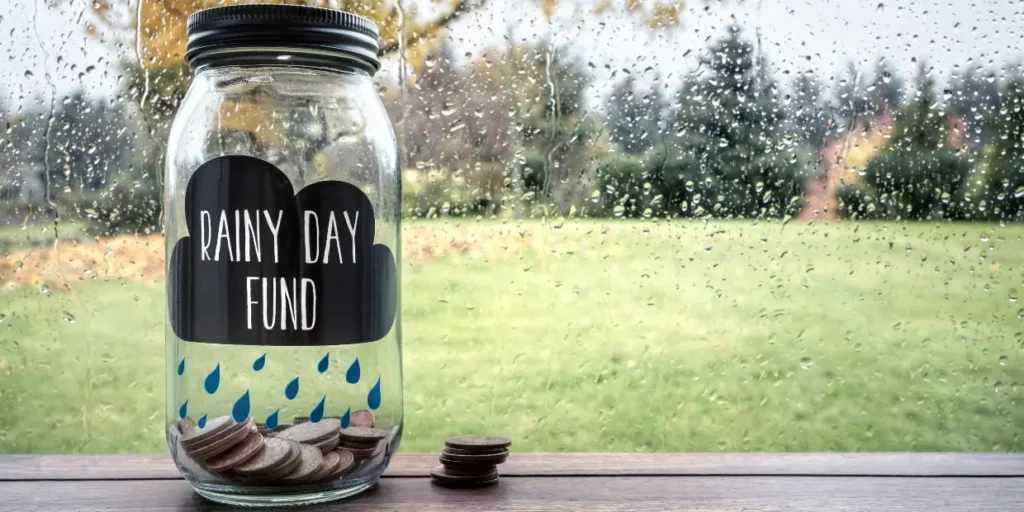The Importance of Saving for a Rainy Day

The Importance of Saving for a Rainy Day
Life is full of surprises, and some of them can be expensive. Whether it’s a medical emergency, job loss, car repairs or any other unforeseen event, having a financial safety net can provide a sense of security and stability. Let’s take a look at why it’s so important to save for rainy days.
Stay out of debt
When life throws an expensive surprise your way and you don’t have money to pay for it, you may fall into debt just to get by. On the flip side, if you had a well-padded emergency fund, you’d have the cash you need to fall back on in case of an emergency.
Be prepared for sudden unemployment
When you live paycheck to paycheck, your job is your financial lifeline. But no job is guaranteed to last forever. Your workplace may decide to downsize, close its doors or even to replace you with a bot. Or, you may find yourself unable to work due to personal circumstances. Having an emergency fund when you’re gainfully employed can help you stay afloat should you suddenly find your lifeline is reduced or cut out.
Flexibility and freedom
Saving for a rainy day brings an element of flexibility and freedom to your life. It enables you to pursue new opportunities, take risks and make major life changes without the constant fear of financial instability. Whether it’s starting a business, furthering your education or taking a sabbatical, savings provides the support you need to confidently explore these possibilities.
Peace of mind
Financial stress can take a toll on your physical and mental wellbeing. Constantly worrying about money can lead to anxiety, depression, strained relationships and more. Knowing you have an emergency fund prepared and on the ready for a rainy day can offer a sense of security and peace of mind.
Achieve long-term financial goals
Saving for a rainy day is not just about preparing for emergencies; it’s also a stepping stone toward achieving long-term financial goals. Whether it’s buying a house, starting a family or planning for retirement, having savings will help you stay on track.
Avoid economic downturns related to market fluctuations
The economy is subject to fluctuations, and financial markets can be volatile. During economic downturns or recessions, people will often face reduced job opportunities, pay cuts or decreased business revenue. However, an emergency fund can make a challenging economic climate easier to navigate. People who’ve saved up money for emergencies will be less reliant on credit cards and loans during such times, thus lowering their vulnerability to economic uncertainties.
If you don’t have a well-padded emergency fund, start building one today! Most experts recommend having three to six months’ worth of living expenses in your emergency fund. Review your monthly expenses to reach this number, and then make a plan for building up your fund until it’s complete. You may want to prioritize your emergency fund over other investments until it’s set up.
When the sun is shining, it’s hard to believe the rain will come, but no one’s life is all sunshine, all the time. Saving for a rainy day is a crucial part of financial wellness. Start saving today with a County Federal Certificate for your short or long term goals.
Content Source: CUContent






